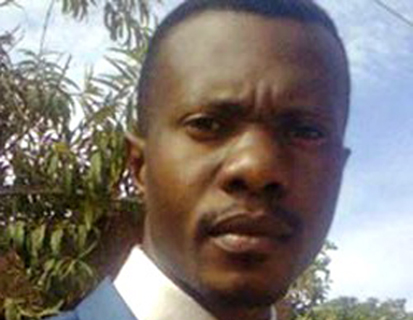
EEARLY last week Zimbabweans woke up to the sad story of a Bulawayo woman, Sanele Hlongwane, who was beaten up by police officers until she defecated.
The woman, who was a girlfriend of a deceased robber, opened up during an inquest at the Bulawayo Magistrates’ Court. She recounted how two officers wielding guns took her in custody and pressed her for information.
She was severely assaulted by close to five officers with a stick and a plank until she soiled her clothes.
She also gave a nerve-racking account of how one officer, only identified as Chifamba, picked a plank stool and viciously assaulted the now-deceased until all the planks on it broke while the deceased was in leg irons. The woman alleges that she was thrown into the cells with other suspects in her messed state.
She also told the magistrate how the officers had forced her into signing a statement they wrote linking her to a robbery allegedly committed by the deceased. The woman recounted how inmates were forced to clean the blood-stained vehicle which came with the deceased showing that he had been seriously injured.
This incident comes hard on the heels of yet another similar incident which is currently before the courts in Bulawayo again.
Two Saurcetown Police Station officers are facing murder charges after they tortured a 20-year-old suspect to death in a malicious damage to property trial currently going on. A witness gave a chilling account of how he was tortured together with five other suspects. The main suspect was the 20-year-old who died a few days after release from custody.
While I am a firm believer in the philosophy that crime does not pay, I also recognise that the law should always be respected.
- Chamisa under fire over US$120K donation
- Mavhunga puts DeMbare into Chibuku quarterfinals
- Pension funds bet on Cabora Bassa oilfields
- Councils defy govt fire tender directive
Keep Reading
Nearly all troubles, whether in politics or religion, start when disregard is given to the law. There seems to be an increasing trend in police officers taking it upon themselves to punish offenders and adducing evidence through coercion.
Still in Bulawayo, two weeks ago, the Zimbabwe Lawyers for Human Rights (ZLHR) filed a lawsuit against Police Commissioner-General Augustine Chihuri and the Home Affairs minister Kembo Mohadi after two police officers attacked security guards and forced them to roll on the tarmac.
ZLHR expressed concern over what it called “police brutality against defenceless citizens”. Pictures of the badly bruised guards who were taken to United Bulawayo Hospital shocked many. It is apparent that such matters often go unreported and uninvestigated.
Zimbabwe’s justice system is built around the doctrine of separation of powers. It is only for the police to apprehend and bring suspects before the courts.
It’s the courts which are mandated to sentence or punish offenders. However, it would appear the trial is now starting in the police stations and ending in the courts which should never be the case. Under the doctrine of separation of powers, it’s not for the police to punish offenders.
Generally, the courts of the land have unreservedly condemned inhuman treatment of suspects.
In 2012, this is what Bulawayo High Court judge Justice Nicholas Ndou said as he berated law enforcers who tortured and seriously injured two Homelink employees who were facing theft charges involving $100 000: “What you are doing is unlawful. You should not torture suspects and deny them legal representation. The officer-in–charge homicide section, as a senior policeman, should know better about the law.”
The police had allegedly set dogs on the accused.
After discovering that they had seriously injured the suspects, they allegedly secretly took them to hospital and kept them under guard.
The police denied them access to a lawyer, prompting an urgent court application by their lawyers.
Mohadi added his voice at a recent pass-out parade when he emphasised the need for law enforcers to acquaint themselves with the Constitution.
He spoke against the torturing of suspects and subjecting suspects to inhuman treatment.
However, what is critical is for the Home Affairs ministry to rise above words to put an end to this evil. In the wake of these torture cases, it is imperative that law enforcement agents are well versed with the provisions of the Constitution especially Section 50 which underlines the rights of arrested and detained persons.
Special emphasis is given to the fact that any person who is arrested must be treated humanely and with respect for their inherent dignity.
The Constitution outlaws torture and forced confessions. One fundamental point of criminal law in Zimbabwe is that every person is presumed innocent until proven guilty. Harare vendors have often threatened to retaliate if brutalised and this will obviously not create a good scenario.
Those who defend human rights continue to call for an end to police brutality. Calls are also being made to conscientise people of their rights in that they can sue police officers for damages caused and that a police complaint can be launched through the district offices.
However, in my view, it should never come to a point where law enforcers are arraigned before the courts when they can adhere to the Constitution and uphold ethical standards so highly emphasised in their profession.










